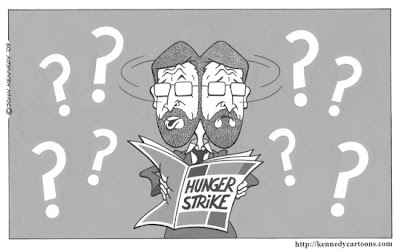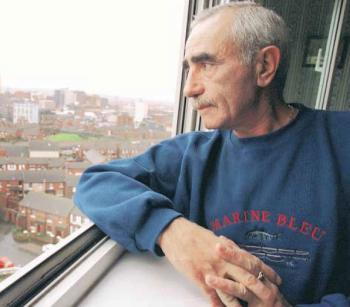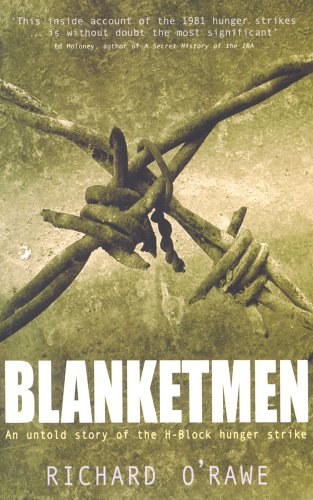Time For An Inquiry says former hunger striker Gerard Hodgins
In 1976 the British introduced the criminalisation policy which decreed that captured Republican volunteer soldiers would henceforth be treated as criminals, being forced to wear a criminal uniform and having no recognition whatsoever as political prisoners. This led to the Blanket Protest and subsequent hunger strikes which convulsed our society, but which did open a window of opportunity to develop a political alternative to armed struggle.
Those of us who were intimately involved in those dark days still carry with us each and every day a reminder of what that all entailed. The horrors of the H-Blocks leap into our consciousness at some point of each and every day; memories of Bobby, Francie, Raymey, Patsy, Joe, Martin, Kevin, Kieran, Tom and Red Mick and their horrific deaths through starvation are a constant. It is an indelible mark upon our lives and one we endured through a comforting prism that our ten friends and comrades were part of a greater struggle to achieve independence and freedom against an intransigent enemy who would not buckle and instead seemed to gloat in the deaths of Irishmen in British prisons on Irish soil.
The comforting narrative ran that the combined intelligence and commitment of the Republican Movement could not bend the Iron Lady, but won honour and political legitimacy through our combined efforts at resisting and exposing criminalisation as the fallacy that it was. The cost was high: five years held naked in extreme conditions of brutality and sensory deprivation culminating in two hunger strikes which claimed ten of our friends, fellow Blanket Men.
That narrative has been seriously challenged in recent years with stories of deals being offered by the British and accepted by the prison O/C, only to be overturned by the Leadership on the outside, thus prolonging the hunger strike and creating a question mark over the deaths of the last six hunger strikers to die.
Events surrounding those dark days were examined at a meeting in Derry recently, organised under the auspices of The Republican Network for Unity. Unfortunately Gerry Adams and the Provisional leadership of the day refused to attend or send a representative to contribute to the proceedings. I find it ironic Gerry can run to meetings in New York and San Francisco to discuss Irish unity with the diaspora yet cannot find the time or courtesy to attend a meeting in his own back yard with ex-Blanket Men and other interested parties of the day, about an issue so crucial to those of us who endured the Blanket protests and hunger strikes.
Recent revelations have pointed to the need for clarity, full disclosure and honesty on the part of all who were involved in those secret negotiations/discussions. I would appeal for all these people, for the sake of our memories and in the service of truth, to agree to co-operate with an inquiry into all aspects associated with this traumatic time in our history which has been thrown into such question with the reports and evidence that a deal could have been secured before Joe McDonnell died.
A genie has been let out of the bottle and thrown the perceived narrative of the horrors of 1981 into question. One thing is certain of those days and which no question mark hangs over: the Blanket Men fought courageously and the hunger strikers died martyrs and their commitment and sacrifice can never be sullied, questioned or diminished in any way.
The final piece of the jigsaw which has remained hidden from view to this day is the actions and reasons for those actions on behalf of the leadership who guided us. It is time for answers and explanations to be offered.
I am not a member or supporter of any political party, grouping or organisation. I am a supporter of peace and politics and don’t advocate any sort of return to the days of war: I am not on a Sinn Fein bashing exercise and have tried to be measured with my words. I am an ex-Blanket Man who was there and would welcome some insight into the secrets of 28 years ago.




 It has withstood the blows of a million years, and will do so to the end.
It has withstood the blows of a million years, and will do so to the end.